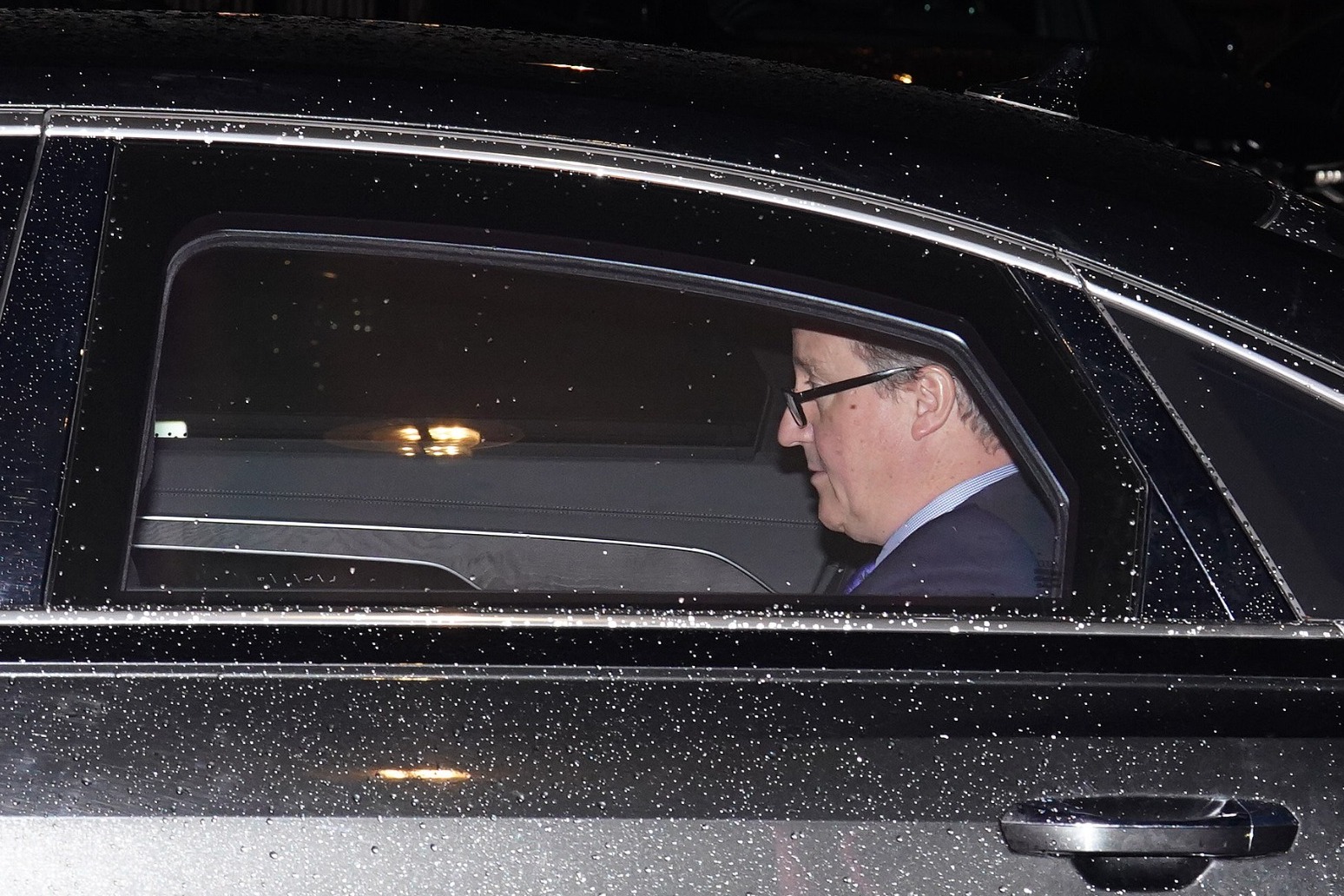
Cameron keen to issue Israel warnings
David Cameron has said "warnings” need to be given to Israel over Gaza aid
Speaking in Parliament, the former prime minister said he would be “starting” with Benny Gantz, a retired general and a member of Israel’s war cabinet, who he was due to meet on Wednesday.
Despite pressing for humanitarian assistance to get through, Lord Cameron said the amount of aid that reached the territory in February was just half that of the previous month.
He also made clear Israel as the occupying power was responsible, which had consequences under international humanitarian law.
The Cabinet minister made his comments as he responded at the end of a lengthy, wide-ranging debate on foreign affairs in the upper chamber, who saw contributions from more than 60 speakers.
Lord Cameron also insisted using frozen Russian assets to fund Ukraine “is the right thing to do” and did not believe it would damage London’s position as a leading financial centre.
Against the backdrop of the devastating Israel-Hamas conflict, triggered by the militant massacre on October 7, Lord Cameron said: “We are facing a situation of dreadful suffering in Gaza. There can be no doubt about that.
“I spoke some weeks ago about the danger of this tipping into famine and the danger of illness tipping into disease and we are now at that point. People are dying of hunger. People are dying of otherwise preventable disease.
“We have been pushing for this aid to get in. We have had a whole set of things we have asked the Israelis to do but I have to report to the House that the amount of aid that got in in February was about half of what got in in January.”
He added: “So patience needs to run very thin and a whole series of warnings need to be given starting I hope with a meeting I have with minister Gantz when he visits the UK.”
He went on: “Israel is the occupying power, it is responsible and that has consequences, including in how we look at whether Israel is compliant with international humanitarian law.”
On the moves to find a permanent peace settlement in the Middle East, Lord Cameron said: “Clearly part of a two-state solution is the recognition of Palestine as a state. I don’t think that should happen at the start of the process because I think that takes all the pressure off the Palestinians to reform, but it shouldn’t have to wait until the end.
“I think recognition can become part of the unstoppable momentum we need to see towards a two-state solution.”
The Tory frontbencher also responded to a report in the Jewish Chronicle that the Foreign Office had hosted a seminar at which officials were told that calling Hamas terrorists was an “obstacle to peace” and it was suggested Israel was a “white, settler colonialist nation”.
Lord Cameron said: “Hamas is a terrorist organisation and let me say very clearly, its apologists should not be invited into the FCDO for a seminar.
“I once said as Prime Minister that when you are Prime Minister you spend half the time trying to find out what the Government is doing and then you spend the half of the time trying to stop it. It turns out being Foreign Secretary is not entirely different.”
On using frozen Russian assets to assist Ukraine, Lord Cameron said: “I think the moral case is there. That this money should be used for the benefit of the Ukrainian people. I think the economic case is very strong.”
Referring to London’s position as a financial centre, he said: “I don’t think this will disadvantage us in any way using this money.”
Outlining the possible options, he said the assets could be used a surety against a loan or bond.
And while aiming for “the maximum amount” of unity with other nations on such a move, he added: “But if we can’t get it I think we will have to move ahead with allies that want to take this action. I think it is the right thing to do.”
Lord Cameron also made a cryptic reference to former Liberal Democrat leader and former coalition partner Sir Nick Clegg in the face of calls by members of the party to restore the UK’s aid-spending target of 0.7% of gross national income.
He told peers: “We are also committed to getting back to 0.7%.
“I won’t reveal what Nick Clegg said to me privately when we were pushing for 0.7% as that would be unfair.”
Published: by Radio NewsHub